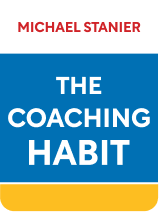

This article is an excerpt from the Shortform book guide to "The Coaching Habit" by Michael Bungay Stanier. Shortform has the world's best summaries and analyses of books you should be reading.
Like this article? Sign up for a free trial here .
What are the benefits of coaching for your team? How does it benefit you as the coach?
Many organizations are shifting to a coaching model of leadership. That’s because there are benefits of coaching that you can’t get with traditional management. It holds advantages for both the coach and the team.
Keep reading to learn three benefits of coaching.
The 3 Benefits of Coaching
Most companies recognize that yesterday’s leadership tactics are becoming less and less applicable in today’s increasingly fast-paced business environment. They’re thus shifting towards a coaching model, where managers empower their employees to find solutions and take action, instead of dictating what their employees should do. This landscape has led to the birth of a multitude of coaching seminars and programs, where managers spend the day trying to learn to be more effective coaches. But few go back to their workplace and apply what they’ve learned. In fact, out of the 73 percent of managers who’ve received coaching training, only 23 percent say that the training has been helpful.
We’ve seen what good coaches can do in sports—they inspire and motivate their players and lead a team to victory. The benefits of coaching extend to the workplace, as well. Coaches can bring out the best in their employees and increase productivity. However, many managers and leaders avoid coaching, thinking that it’s too complicated, too awkward, or too impractical. Others believe they’re already coaching, when all they’re really doing is giving advice. All too often, the benefits of coaching are not appreciated in the workplace.
As we’ll see, true coaching is imperative to being a good manager. In The Coaching Habit, you’ll learn how to turn coaching into an informal, effective daily habit.
Whatever it is that’s keeping you from coaching, there are three benefits of coaching that illustrate why you should put in the time and effort to make it a daily habit:
- It empowers your team members. If most of your team’s responsibilities need your input and approval, then that means you’ve trained your team, perhaps inadvertently, to become overly reliant on you. This not only increases your workload but also makes you a potential bottleneck. By coaching your team, you train them to become more self-sufficient, effective, and efficient, all while lightening your load.
- It allows you to refocus. You can lose sight of your goals when you keep getting pulled in several directions at once. Coaching can help you and your team remember what’s important.
- It clarifies your purpose. Having coaching sessions can help both you and your direct reports see the meaning behind the work you’re doing, motivating you to perform at your best.
In short, coaching helps your team members grow and develop while making your work easier, more focused, more meaningful, and more enjoyable.
In order to be effective and sustainable—to fully enjoy the benefits of coaching—your coaching should cover seven essential questions:
- The Conversation Starter Question: What’s on your mind?
- The Follow-Through Question: Anything else?
- The Laser Beam Question: What’s the central challenge for you?
- The Empowerment Question: What do you want?
- The Heavy Lifter Question: How can I support you?
- The Commitment Question: What’s the cost of saying ‘yes’?
- The Insight Question: What insights did you gain?
The Coaching Habit discusses each of these questions and why they’re important to effective coaching, and it explores ways to make them habitual. Asking these questions is a habit that will help you get over a big hurdle of effective coaching: talking too much and not listening enough. It’s a habit that can refresh and revamp your daily interactions with your team members and other people at work (like your customers and your boss) and ultimately transform the way you and your team work. But learning new habits means unlearning old ones that you might have, like automatically offering solutions or not coaching at all.
(Shortform note: You should view these seven questions as individual tools rather than as a system—you don’t need to use all the questions one after the other. In any coaching situation, choose whichever questions feel most natural, applicable, and useful.)

———End of Preview———
Like what you just read? Read the rest of the world's best book summary and analysis of Michael Bungay Stanier's "The Coaching Habit" at Shortform .
Here's what you'll find in our full The Coaching Habit summary :
- How to turn coaching into an informal, effective daily habit
- Why you should practice listening instead of speaking for 10 minutes a day
- The seven essential questions to ask your team members






